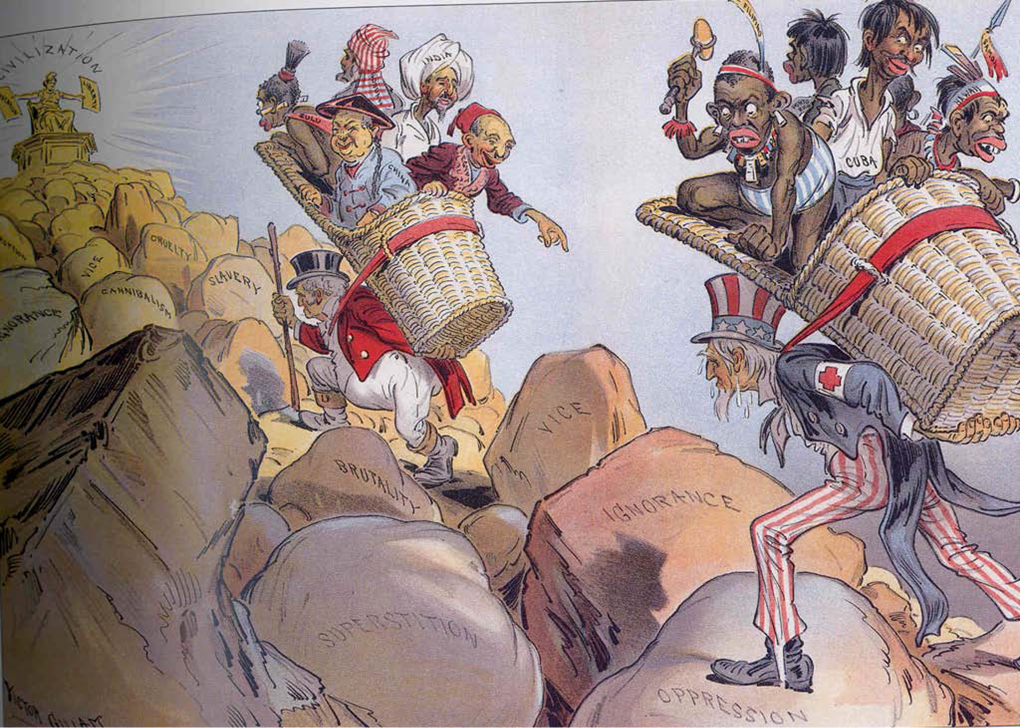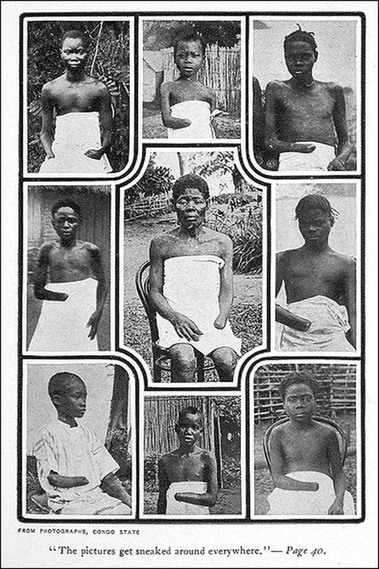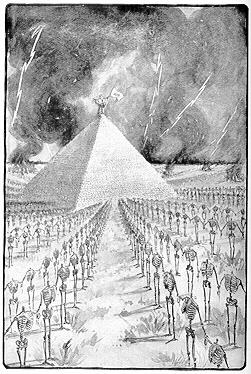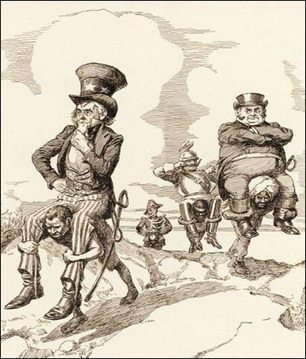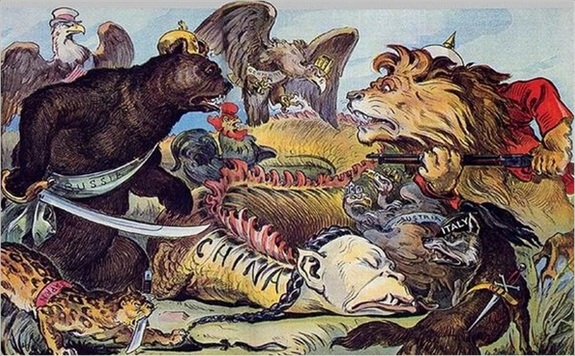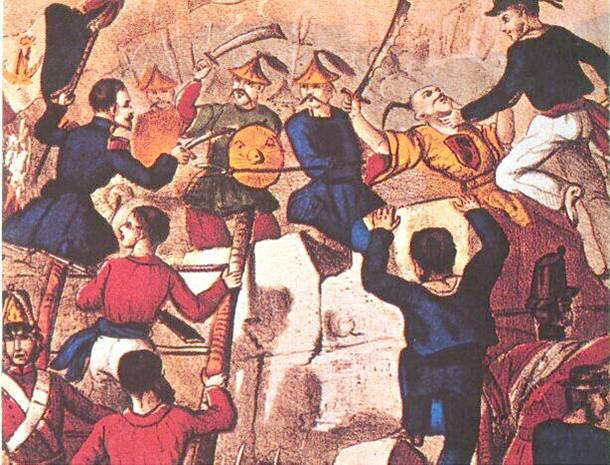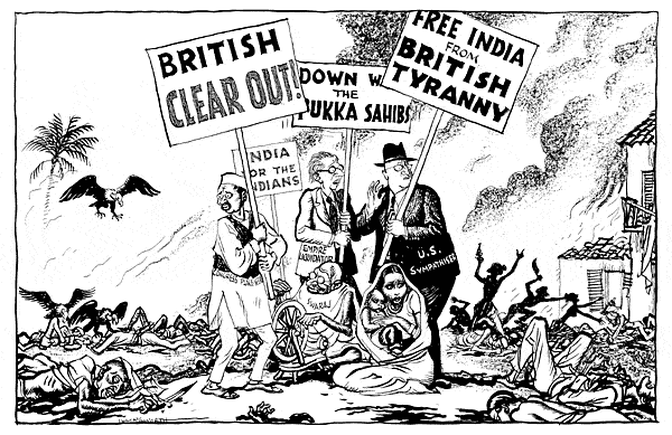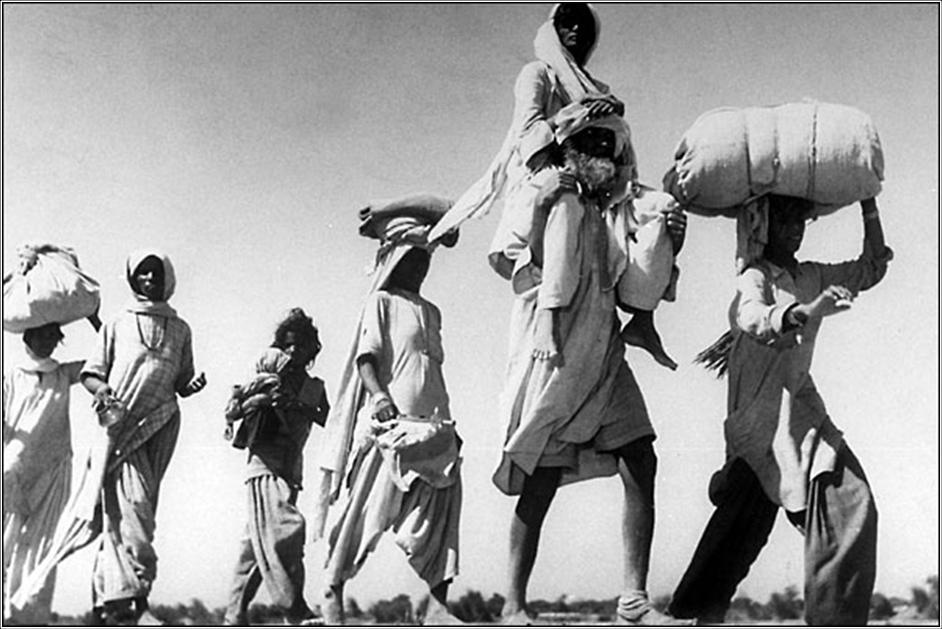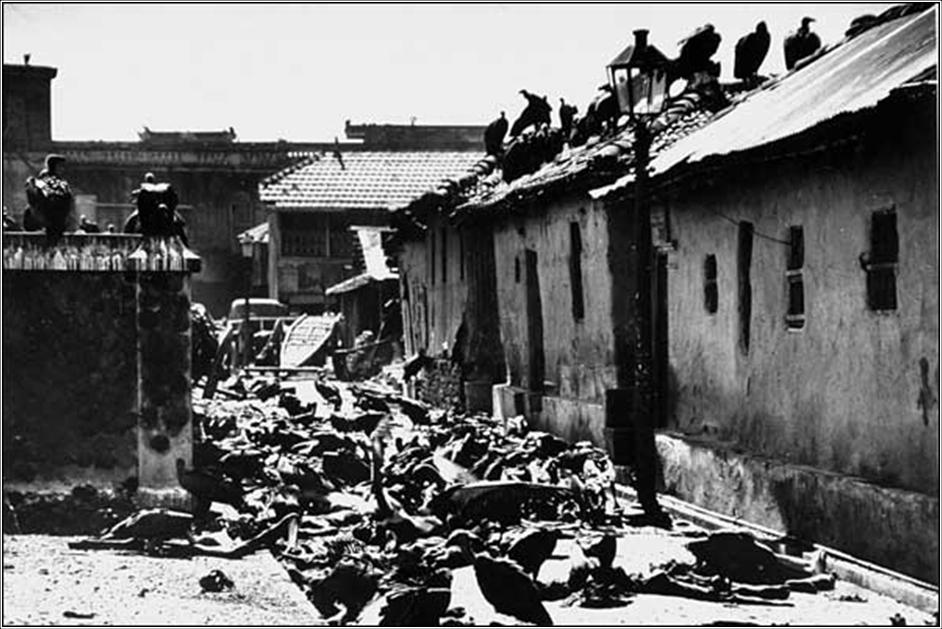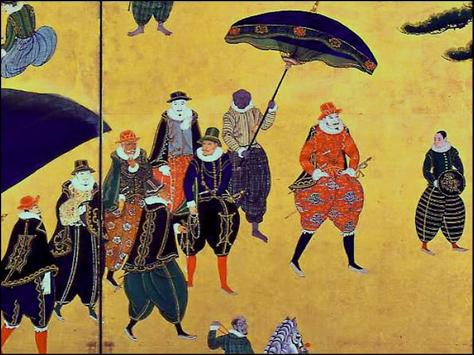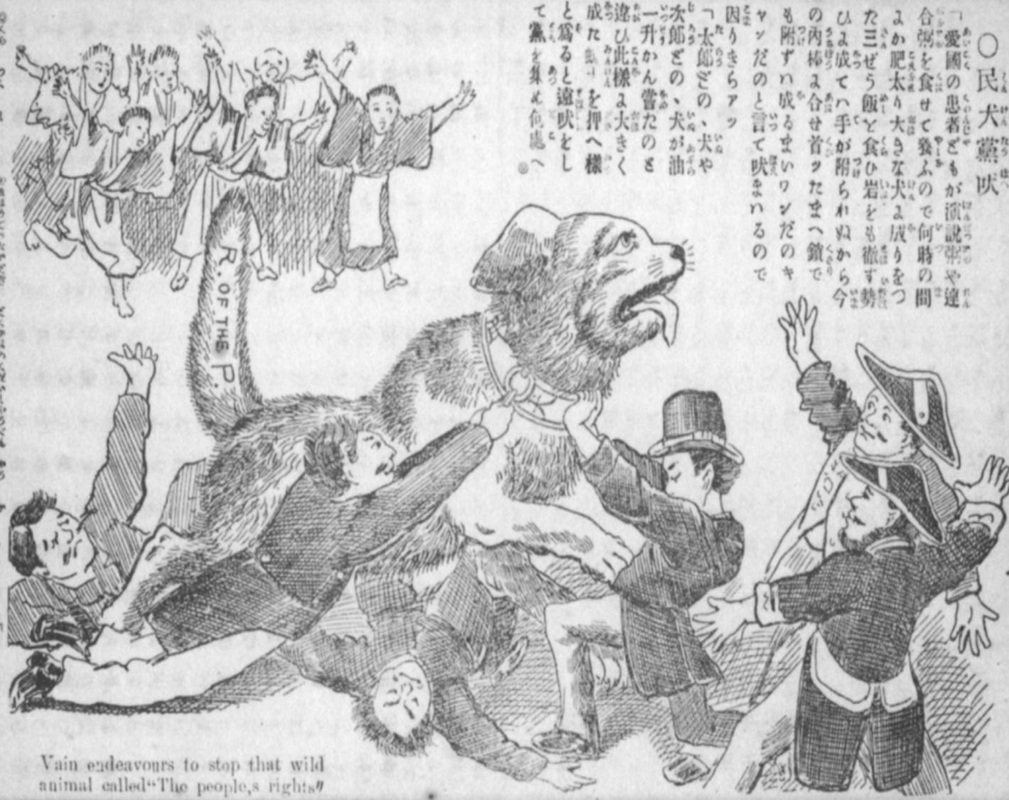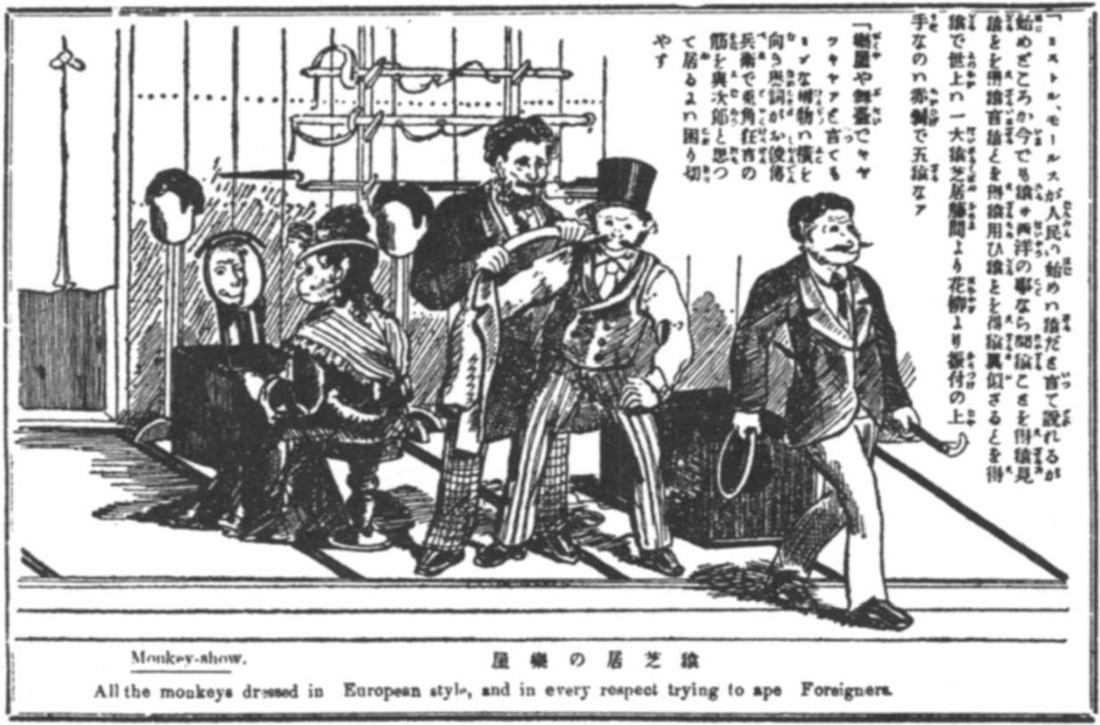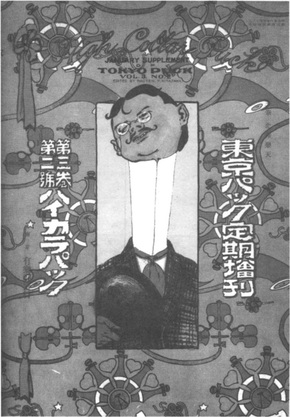imperialism
RATIONALE, CRITICISM, AND RESPONSE
One of the most heavily-vetted and multi-faceted parts of American and world history is the story of imperialism. For some, it was the "White Man's Burden" to "send forth the best ye breed" to "Christianize" and modernize the darkest parts of the globe. For others, imperialism was a "...depraved choice of natural life". In this activity, we'll explore the rationale and criticism for imperialism, and in examining certain "models of imperialism", we will conclude on the "best approaches" and those that should be omitted completely. Read through the texts provided, examine the pictures, and answer the questions.
part i: imperial rationale
For many Europeans, the notion that they were "superior men" played heavily into the rationale for imperialism.
1. What is the thesis of the above cartoon? Be sure to include some of the phrases on the rocks in your answer...
Morton Stanley, of British birth but American citizenship, rose to fame in the employ of King Leopold II of Belgium. In 1871, he led an expedition into the Congo to look for Dr. David Livingstone, an ultra-famous explorer who had gone missing. Stanley's mission into the Congo is detailed below, in his own words. Read through them and then answer the questions.
- Ngalyema, [one of the chiefs of the Congo region], had demanded and received $4,500 worth of cotton, silk, and velvet goods for granting me the privilege of establishing a station in a wilderness of a place at the commencement of upriver navigation...I had hung a great Chinese gong conspicuously near the principle tent... "Be warned, [Stanley]. Go back before it's too late. My elders and people all cry out against the white man to come into our country. Therefore, go back before it's too late. Go back, I say, the way you came." Speech and counter-speech followed. Ngalyema had exhausted his arguments; but it was not easy to break faith and be uncivil, without plausible excuse. His eyes were reaching round seeking to discover an excuse to fight, when they rested on the round, burnished face of the Chinese gong.
“What is that?” he said.
“Ah, that — that is a fetish.” [SIDE NOTE: In this case, a "fetish" is an object perceived to have magical powers.]
“A fetish! A fetish for what?”
“It is a war-fetish, Ngalyema. The slightest sound of that would fill this empty camp with hundreds of angry warriors; they would drop from above, they would spring up from the ground, from the forest about, from everywhere.”
And...[at his request]... I struck hard and fast, and the clangorous roll rang out like thunder in the stillness. Only for a few seconds, however, for a tempest of human voices was heard bursting into frightful discords, and from above, right upon the heads of the astonished warriors, leaped yelling men; and from the tents, the huts, the forest round about, they came by sixes, dozens, and scores, yelling like madmen, and seemingly animated with uncontrollable rage. The painted warriors became panic-stricken; they flung their guns and powder-kegs away, forgot their chief, and all thoughts of loyalty, and fled on the instant, fear lifting their heels high in the air; or, tugging at their eyeballs, and kneading the senses confusedly, they saw, heard, and suspected nothing, save that the limbo of fetishes had suddenly broken loose!...“Ah, Ngalyema, did I not tell you that thing was a powerful fetish? Let me strike it again, and show you what else it can do.”...
We had sown seeds of good — will at every place we had touched, and each tribe would spread diffusively the report of the value and beauty of our labors....We must have white men in Africa; but the raw white is as great a nuisance there during the first year, as a military recruit who never saw a gun till he enlisted. In the second year, he begins to mend; during the third year, if his nature permits it, he has developed into a superior man, whose intelligence may be of transcendent utility for directing masses of inferior men....My officers were possessed with the notion that my manner was “ hard,” because I had not many compliments for them. That is a kind of pap which we may offer women and boys, but it is not necessary for soldiers and men, unless it is deserved....Besides, I thought they were superior natures, and required none of that encouragement, which the more childish blacks almost daily received.
2. European imperialists often showed their skill by revealing "frightening displays" of strength. Why did Stanley strike the gong, and what did it make the natives do?
3. We see a bit more of the "superior man" ideology here. Why, in Stanley's opinion, should there be white men in Africa? What will it do for them?
3. We see a bit more of the "superior man" ideology here. Why, in Stanley's opinion, should there be white men in Africa? What will it do for them?
It's now common knowledge that Leopold II and the Belgians perhaps carry the "crown" for chief abuses committed against the Africans. But Leopold doesn't see it that way. In the words of Mark Twain, who wrote King Leopold's Soliloquy from his perspective (although he was ridiculing him...), Leopold refutes claims to this abuse.
- It is all the same old thing -- tedious repetitions and duplications of shop-worn episodes; mutilations, murders, massacres, and so on, and so on, till one gets drowsy over it...The kodak has been a sore calamity to us. The most powerful enemy that has confronted us, indeed. In the early years...all things went harmoniously and pleasantly in those good days, and I was looked up to as the benefactor of a down-trodden and friendless people. Then all of a sudden came the crash! That is to say, the incorruptible kodak -- and all the harmony went to hell! The only witness I have encountered in my long experience that I couldn't bribe. Every Yankee missionary and every interrupted trader sent home and got one; and now -- oh, well, the pictures get sneaked around everywhere, in spite of all we can do to ferret them out and suppress them. Ten thousand pulpits and ten thousand presses are saying the good word for me all the time and placidly and convincingly denying the mutilations. Then that trivial little kodak, that a child can carry in its pocket, gets up, uttering never a word, and knocks them dumb!
4. Again, remember that this is written by Mark Twain attempting to vilify (make an enemy of) Leopold II. And this is an important text. What, in Leopold's opinion, is the reason for his "calamity", completely ignoring the image you see above?
Part II: Imperial Criticism
Critics of imperialsm were not hard to find. There were those who "reversed" the cartoon that you see above, pronouncing that it was the "Dark Man's Burden", not the "white man's", to carry the weight of the imperial nations. There were those like J.A. Hobson and Joseph Conrad who wrote well-recieved books on the horrors of imperialism. But what was their main complaint? Let's start by reading Rudyard Kipling's "White Man's Burden" below:
Take up the White Man's burden--
Send forth the best ye breed--
Go bind your sons to exile
To serve your captives' need;
To wait in heavy harness,
On fluttered folk and wild--
Your new-caught, sullen peoples,
Half-devil and half-child.
Take up the White Man's burden--
In patience to abide,
To veil the threat of terror
And check the show of pride;
By open speech and simple,
An hundred times made plain
To seek another's profit,
And work another's gain.
Take up the White Man's burden--
The savage wars of peace--
Fill full the mouth of Famine
And bid the sickness cease;
And when your goal is nearest
The end for others sought,
Watch sloth and heathen Folly
Bring all your hopes to nought.
Take up the White Man's burden--
No tawdry rule of kings,
But toil of serf and sweeper--
The tale of common things.
The ports ye shall not enter,
The roads ye shall not tread,
Go mark them with your living,
And mark them with your dead.
Take up the White Man's burden--
And reap his old reward:
The blame of those ye better,
The hate of those ye guard--
The cry of hosts ye humour
(Ah, slowly!) toward the light:--
"Why brought he us from bondage,
Our loved Egyptian night?"
Take up the White Man's burden--
Ye dare not stoop to less--
Nor call too loud on Freedom
To cloke your weariness;
By all ye cry or whisper,
By all ye leave or do,
The silent, sullen peoples
Shall weigh your gods and you.
Take up the White Man's burden--
Have done with childish days--
The lightly proferred laurel,
The easy, ungrudged praise.
Comes now, to search your manhood
Through all the thankless years
Cold, edged with dear-bought wisdom,
The judgment of your peers!
Send forth the best ye breed--
Go bind your sons to exile
To serve your captives' need;
To wait in heavy harness,
On fluttered folk and wild--
Your new-caught, sullen peoples,
Half-devil and half-child.
Take up the White Man's burden--
In patience to abide,
To veil the threat of terror
And check the show of pride;
By open speech and simple,
An hundred times made plain
To seek another's profit,
And work another's gain.
Take up the White Man's burden--
The savage wars of peace--
Fill full the mouth of Famine
And bid the sickness cease;
And when your goal is nearest
The end for others sought,
Watch sloth and heathen Folly
Bring all your hopes to nought.
Take up the White Man's burden--
No tawdry rule of kings,
But toil of serf and sweeper--
The tale of common things.
The ports ye shall not enter,
The roads ye shall not tread,
Go mark them with your living,
And mark them with your dead.
Take up the White Man's burden--
And reap his old reward:
The blame of those ye better,
The hate of those ye guard--
The cry of hosts ye humour
(Ah, slowly!) toward the light:--
"Why brought he us from bondage,
Our loved Egyptian night?"
Take up the White Man's burden--
Ye dare not stoop to less--
Nor call too loud on Freedom
To cloke your weariness;
By all ye cry or whisper,
By all ye leave or do,
The silent, sullen peoples
Shall weigh your gods and you.
Take up the White Man's burden--
Have done with childish days--
The lightly proferred laurel,
The easy, ungrudged praise.
Comes now, to search your manhood
Through all the thankless years
Cold, edged with dear-bought wisdom,
The judgment of your peers!
5. What is the thesis of this poem?
J.A. Hobson and his powerful book, Imperialism, seems to perfectly summarize the argument against imperialism. Below is an excerpt from his text.
- For [those who advocate imperialism], biology and sociology weave thin convenient theories of a race....[It is a] struggle for the subjugation of the inferior peoples, in order that we, the Anglo-Saxon, may take their lands and live upon their labors; [Economists state] the argument that we are representing our work in conquering and ruling them as our share in the division of labor among nations, and [historians] devise reasons why the lessons of past empire do not apply to ours, while social [Darwinists] paints the motive of "Imperialism" as the desire to bear the "burden" of educating and elevating races of "children."....For the masses...current history [is] falsified in coarse flaring colors, for the direct stimulation of the combative instincts....Imperialism is a depraved choice of national life, imposed by self-seeking interests which appeal to the lusts of quantitative acquisitiveness and of forceful domination surviving in a nation from early centuries of animal struggle for existence. Its adoption as a policy implies a deliberate renunciation of that cultivation of the higher inner qualities which for a nation as for an individual constitutes the ascendancy of reason over brute impulse. It is the besetting sin of all successful States, and its penalty is unalterable in the order of nature.
6. Consider some of the "buzz phrases" he associates with imperialism:
Choose one (1) of his "buzz phrases" that you think BEST summarizes imperialism, and tell me why.
- "...the subjugation of the inferior peoples..."
- "...a depraved choice of natural life..."
- "...self-seeking interests..."
- "...forceful domination..."
- "...animal struggle for existence."
- "...the besetting sin of all successful States"
Choose one (1) of his "buzz phrases" that you think BEST summarizes imperialism, and tell me why.
PART III: IMPERIALIST RESPONSE
The case studies of China and India instruct us on how dangerous it was to resist imperial aggression. In fact, only Japan would find true success in responding to imperial aggression. Let's start by examining the European abuse of China, seen in the following document, "The Boxers Declare Death to 'Foreign Devils'":
The Gods assist the Boxers,
The Patriotic Harmonious corps,
It is because the “Foreign Devils” disturb the “Middle Kingdom.”
Urging the people to join their religion,
To turn their backs on Heaven,
Venerate not the Gods and forget the ancestors.
Men violate the human obligations,
Women commit adultery,
“Foreign Devils” are not produced by mankind,
If you do not believe,
Look at them carefully.
The eyes of all the “Foreign Devils” are bluish,
No rain falls,
The earth is getting dry,
This is because the churches stop Heaven,
The Gods are angry;
The Genii ["Guardian Spirits] are vexed;
Both come down from the mountain to deliver the doctrine.
This is no hearsay,
The practices of boxing will not be in vain;
Reciting incantations and pronouncing magic words,
Burn up yellow written prayers,
Light incense sticks
To invite the Gods and Genii of all the grottoes.
The Gods come out from grottoes,
The Genii come down from mountains,
Support the human bodies to practice the boxing.
When all the military accomplishments or tactics
Are fully learned,
It will not be difficult to exterminate the “Foreign Devils” then.
Push aside the railway tracks,
Pull out the telegraph poles,
Immediately after this destroy the steamers.
The great France
Will grow cold and downhearted.
The English and Russians will certainly disperse.
Let the various “Foreign Devils” all be killed.
May the whole Elegant Empire of the Great Qing Dynasty be ever prosperous!
The Patriotic Harmonious corps,
It is because the “Foreign Devils” disturb the “Middle Kingdom.”
Urging the people to join their religion,
To turn their backs on Heaven,
Venerate not the Gods and forget the ancestors.
Men violate the human obligations,
Women commit adultery,
“Foreign Devils” are not produced by mankind,
If you do not believe,
Look at them carefully.
The eyes of all the “Foreign Devils” are bluish,
No rain falls,
The earth is getting dry,
This is because the churches stop Heaven,
The Gods are angry;
The Genii ["Guardian Spirits] are vexed;
Both come down from the mountain to deliver the doctrine.
This is no hearsay,
The practices of boxing will not be in vain;
Reciting incantations and pronouncing magic words,
Burn up yellow written prayers,
Light incense sticks
To invite the Gods and Genii of all the grottoes.
The Gods come out from grottoes,
The Genii come down from mountains,
Support the human bodies to practice the boxing.
When all the military accomplishments or tactics
Are fully learned,
It will not be difficult to exterminate the “Foreign Devils” then.
Push aside the railway tracks,
Pull out the telegraph poles,
Immediately after this destroy the steamers.
The great France
Will grow cold and downhearted.
The English and Russians will certainly disperse.
Let the various “Foreign Devils” all be killed.
May the whole Elegant Empire of the Great Qing Dynasty be ever prosperous!
7. China would not remove the "Foreign Devils" as they hoped to do; the Boxer Rebellion was wholly crushed by the European powers. Why did the Chinese think that they would succeed in response?
Ever since the early 1600s, the British had been a presence in India, primarily for the sale and cultivation of tea. Years of abuse, famine, war, and religious strife eventually led to cries of independence after World War II. In 1947, British officials decided to divide the colony of India into two states: India, a homeland for the Hindus, and Pakistan, a homeland for the Muslims. Called the "Great Partition", the subsequent movement of 14 million people to their "new homeland" (western Hindus moving east to India; eastern Muslims moving west to Pakistan) is considered the largest forced migration in human history.
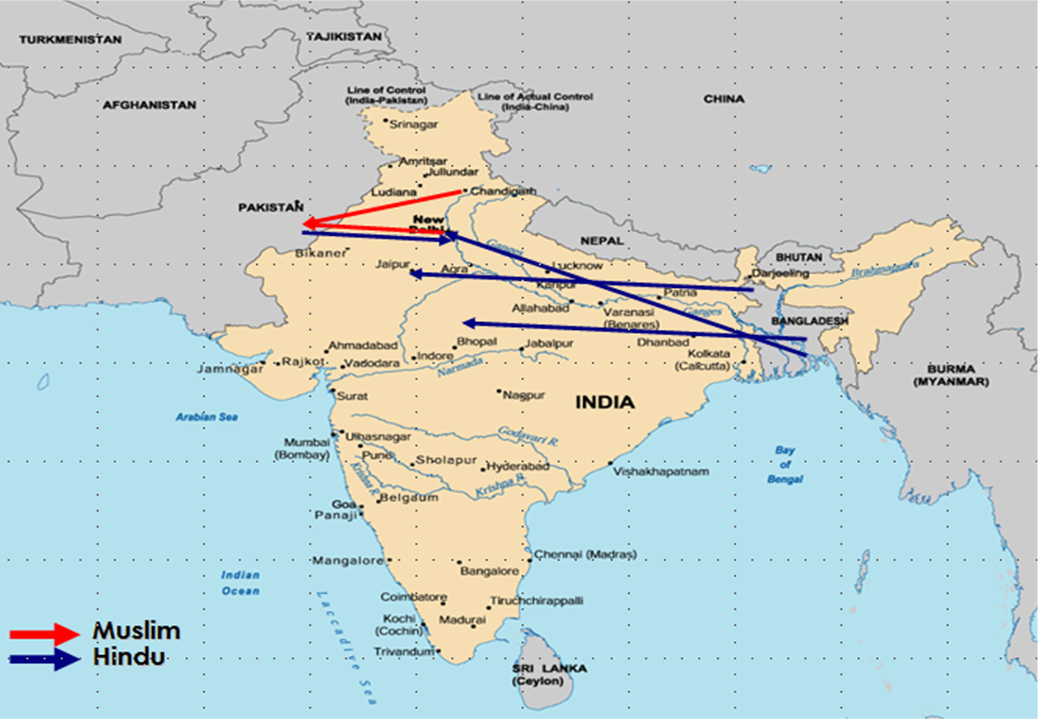
Hindus from as far away as modern-day Bangladesh and Bhutan had to move west into India. Most Indian-born Muslims traveled to the Eastern Punjab region of Pakistan. Notice how close the "exchange" is between Punjabi Hindus coming TOWARDS New Delhi and Delhian Muslims moving AWAY from the city and to their new land in Pakistan.
Muslim and Hindu hatred traces back to the days of the Thirteenth Century during the Muslim Crusades into India. In the year 1296, Muslims attacked the Somnath Temple, where: "fifty thousand infidels were dispatched to hell by the sword" and "more than twenty thousand slaves, and cattle beyond all calculation fell into the hands of the victors". The temple would be rebuilt, and they demolished, another three times throughout history.
In 1947, exchanges on the roads between Hindus and Muslims often turned horrifically violent. In taking the photograph below, the journalist would say that, "The street was short and narrow. Lying like the garbage across the street and in its open gutters were bodies of the dead."
Refugee camps were set up along the way as international aid attempted to help in any way they could. The following picture, featured in LIFE Magazine, summarizes the horrors of "failed imperialism".
8. Indian nationalism, as seen in the Indian National Congress and in the works of Gandhi did not succeed in creating a harmonious homeland. BUT! They did achieve independence! And in utilizing our theory of ethnic nationalism, we discussed that for an ethnicity to achieve success, they have to have a homeland! ANALYSIS: Why then, in the case of India, didn't they succeed in the same way that Ireland did in the 1920s?
It seems as if the receding tides of imperialism often resulted in irrecoverable damage to the imperialzed nation. Regardless of whether they were "crushed" (like China) or rendered impotent (like India) it seems as if resistance to imperialism was futile. But Japan and its Meiji Restoration offers an alternative to the "failed imperial response".
The Meiji Restoration was a direct response to European influence that had been present since the mid-1500s. Americans, Dutch, and French military forces attempted to subdue any sentiments of anti-imperialism, and succeeded, until the 1860s when Meiji restored the dignity of Japan, intent to "enrich the state and strengthen the armed forces". Well, kinda.
The following article, "The Gender of Nationalism: Competing Masculinities in Meiji Japan" by Jason Karlin shows the success of Japanese anti-imperial response, but as you'll see, not everyone embraced "successful ethnic nationalism".
The following article, "The Gender of Nationalism: Competing Masculinities in Meiji Japan" by Jason Karlin shows the success of Japanese anti-imperial response, but as you'll see, not everyone embraced "successful ethnic nationalism".
The Meiji attempted to "Westernize" in all possible ways: financially, politically, militarily, and perhaps most importantly, sociologically. Karlin says that Meiji rulers "...looked to the lifestyle of the European dandy as a model of sophistication and style." But not everyone agreed.
9. Refer to the cartoon above. Can you deduce the thesis, now that you know about how Western culture was viewed by the "R. of the P."?
Japan's Meiji Restoration is so fascinating because historians will call it a "successful response" to imperial aggression. According to our textbook, "Japan borrowed rapidly and adapted skillfully the West's science and modern techonology, particularly in industry, medicine, and education." And although later it, the "...wholescale borring of the early restoration had given way to more selective emphaiss" on things that would not interfere with traditional Japanese culture, it was Japan that "...provided patriots throughout Asia and Africa with an inspiring example of national recovery and liberation."
And while that all might be true, it's important to note that this "liberation" was not initially well-received.
10. To a true Japanese "nationalist", why might it feel like the Meiji Restoration was actually more of a "step back" than a "step forward"?
Karlin continues to state that "...in images...the state becomes increasingly identified with the West through the associative use of fashion." Newspapers also began to show the so-called "gentlemen" as monkeys:
- "...Critics denounced the reception of Western culture as imitative and shallow, and argued that the Japanese experience of modernity was concerned only with appearance and form. They condemned Western decadence by linking it to the effeminacy of fashion, consumption, and materialism. Implicit in these criticisms was not only anxiety about the threat of feminization, but concerns that modem life in Japan lacked morality, spirit, and ideals because it had been imposed by the West."
9. Refer to the cartoon above. Can you deduce the thesis, now that you know about how Western culture was viewed by the "R. of the P."?
Japan's Meiji Restoration is so fascinating because historians will call it a "successful response" to imperial aggression. According to our textbook, "Japan borrowed rapidly and adapted skillfully the West's science and modern techonology, particularly in industry, medicine, and education." And although later it, the "...wholescale borring of the early restoration had given way to more selective emphaiss" on things that would not interfere with traditional Japanese culture, it was Japan that "...provided patriots throughout Asia and Africa with an inspiring example of national recovery and liberation."
And while that all might be true, it's important to note that this "liberation" was not initially well-received.
- The Japanese gentlemen were "men of talent" who carried the responsibility of leading Japan into the modem world. ...Unlike the word "gentleman" in English, shinshi ("gentlemen" in Japanese) carried associations with government officials. As one Meiji observer noted, the gentleman is "an educated man of high society in public service who dedicates himself to the service of the state." The Japanese gentleman of the early Meiji period was typically identified by his frock coat, necktie, and whitecollared shirt. On formal occasions, he wore a swallow-tailed coat and silk hat....[where]..."one's undershirt should always be fresh, white gloves along with one's shoes should be clean, and neckties should be properly knotted."
10. To a true Japanese "nationalist", why might it feel like the Meiji Restoration was actually more of a "step back" than a "step forward"?
Karlin continues to state that "...in images...the state becomes increasingly identified with the West through the associative use of fashion." Newspapers also began to show the so-called "gentlemen" as monkeys:
True Japanese nationalists, started to believe that the "...'country gentlemen' were losing their social responsibility and sense of public duty, and becoming nothing more than petty bureaucrats who were 'extravagant, self-indulgent, lewd, weak, and corrupt.'...[They] insisted that although Western civilization was founded on popular inspirations, after entering Japan it assumed something of an 'aristocratic stench'."
11. ANALYSIS and RECOLLECTION: Does this quote about the "country gentlemen" remind you of another group of people who looked upon the government with disdain? Who? Why?
11. ANALYSIS and RECOLLECTION: Does this quote about the "country gentlemen" remind you of another group of people who looked upon the government with disdain? Who? Why?
Images like these began appearing in Japanese newspapers. One critic humorously noted the following as some of the qualifications necessary to be judged "high collar":
Karlin concludes with the following:
12. Ironically, in the process of RESISTING imperialism, it seems as if the Japanese actually EMBRACED it in their own way. Historians conclude that the Meiji Restoration was one of the only instances where the imperialized nation actually succeeded in rejecting the imperial one. But is this the case? Offer your answer here, as a conclusion to this activity.
- embellish one's dress above all else
- enthusiastically speak foreign languages
- compliment one's own wife in the presence of others
- spend half the day making up one's appearance
- grovel before one's superiors
- peer at others through your pince-nez [eye glasses, usually clipped to the nose] while smoking a cigar
- become totally shameless
- forget how to speak Japanese.
Karlin concludes with the following:
- In the dialectic of the transitory and eternal in Japanese discourses of modernity, the novelty, artifice, and ephemerality of Western material civilization came to represent the destruction of authentic, spiritual values. According to Partha Chaterjee, anticolonial nationalism "divides the world of social institutions and practices into two domains - the material and the spiritual."
12. Ironically, in the process of RESISTING imperialism, it seems as if the Japanese actually EMBRACED it in their own way. Historians conclude that the Meiji Restoration was one of the only instances where the imperialized nation actually succeeded in rejecting the imperial one. But is this the case? Offer your answer here, as a conclusion to this activity.
